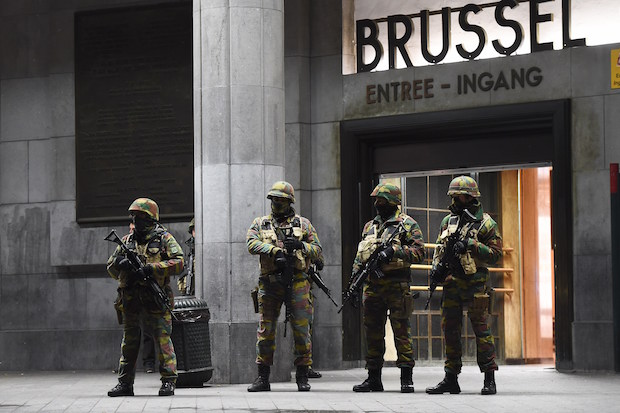On Tuesday morning Belgium was the latest European country to suffer a major terrorist attack. It is a disturbing reminder of the war that has not gone away. After the arrest of Salah Abdeslam, chief suspect over atrocities at the Bataclan centre in Paris last November, Belgian officials warned of the prospect of revenge attacks: perhaps spectacular atrocities, aiming at killing hundreds. They came four days later in Brussels airport and Metro — a demonstration of the jihadis’ ability to act quickly.
After such an attack we can expect to be offered a blizzard of explanations, many of them erroneous. One commonly heard claim is that Islamist terrorism is a response to western foreign policy. Yet few countries have been less active in foreign policy than Belgium. The harder truth is that Belgium’s problems, like those of its French neighbour, are primarily domestic. As the raids in Molenbeek showed, there are areas which the police and security services enter only with trepidation and where some locals are willing to give cover and shelter to known terrorists. As we reported in the wake of November’s Paris attacks, Belgium and France’s problems come down to an issue of mass Muslim migration and a rejection of assimilation by some of those incomers. In Belgium and France, as in the UK, the areas where Muslim populations are particularly dense are disproportionately likely to be the places from which the terrorists come. After the arrest of Abdeslam in Molenbeek there were reports of local youths attacking Belgian security forces. This was not simply because the police were in ‘their’ area, but because the authorities had taken away someone that some of them admired.
For years the Belgian authorities have been seen as a weak link in Europe’s defences. The Belgians believed, as the British security services did before 7/7, that if they allowed Islamism to gestate at home, the terrorists would spare the country that had given them sanctuary. That fallacy now lies on the scrapheap of ideas where it always belonged.
Although Belgium has particular security problems, it is important to remember that such an attack could happen anywhere. The reason there has not been a major terrorist attack in the UK for more than a decade is not because Islamists lack the will. At least half a dozen major Isis-style attacks have been thwarted in the last year in the UK alone. The fact that these attacks did not happen is a consequence of exceptional work by the British security services and because, thanks to our geography, it is harder to get munitions across the Channel than across the increasingly porous borders of what used to be the Schengen area.
The jihadi threat is evolving, and our ability to respond is — thankfully — evolving with it. But as the IRA famously said, bombers have to be lucky only once: the police need to be lucky all of the time. Britain has been lucky, but it is far from inevitable that our luck will hold.
The politics of purpose
George Osborne is often accused of being a highly political Chancellor. If only this were true. His major failing is an inability to predict the political reactions to his Budget statements, and then to revoke policy once he realises its unpopularity. It took Iain Duncan Smith’s resignation to draw the Chancellor’s attention to the folly of juxtaposing disability benefit cuts with tax cuts for the wealthy. Then afterwards MPs were stunned to be told that further welfare cuts — seen as non-negotiable a few weeks ago — have now been abandoned. That was a hugely expensive and unnecessary concession, made out of blind political panic.
The Energy Secretary, Amber Rudd, said last weekend that she ‘resented’ Duncan Smith’s ‘high moral tone’. She would do better to learn from it. He was pointing out that the Conservative party needs to have a purpose: that Tories should be concerned with what is right as well as what is fiscally necessary — and that confident, modern Conservatives talk about both. They also think about both before they pass a Budget. That ought to be a fairly basic point.
Mr Cameron tried to repair the damage this week by making a speech about how his government is dedicated to the poorest. He has a long list of achievements to back up this claim, but it is all undermined by sloppy mistakes. We are still just a year into this parliament; there is plenty of time for the government to correct itself. And time for the Prime Minister to explain to a still–sceptical country what Conservatism is for.
Got something to add? Join the discussion and comment below.
Get 10 issues for just $10
Subscribe to The Spectator Australia today for the next 10 magazine issues, plus full online access, for just $10.
You might disagree with half of it, but you’ll enjoy reading all of it. Try your first month for free, then just $2 a week for the remainder of your first year.














Comments
Don't miss out
Join the conversation with other Spectator Australia readers. Subscribe to leave a comment.
SUBSCRIBEAlready a subscriber? Log in